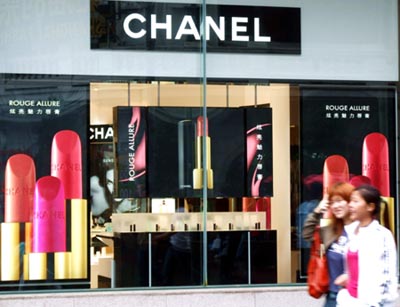| Tools: Save | Print | E-mail | Most Read |
| China's New Woman Strides Out with More Spending Power |
| Adjust font size: |
With increased economic independence translating into greater spending power, women in
Interestingly enough, as incomes rise and the middle class expands, research indicates that shoppers in "Men have been the traditional buyers, and in 2001, three out of four consumers were men," said Emmanuel Prat, president of LVMH Moet Hennessy Louis Vuitton, the world's biggest luxury goods group with products ranging from perfume to champagne. "But now, as women are becoming more economically independent, they account for a larger share of the luxury market and there is big potential," he said. A survey by consultants KPMG, Australia's Monash University and market research firm TNS found young Chinese women are beginning to supplant businessmen aged over 35 as the main Chinese buyers of luxury goods. "Until recently, 90 percent of all luxury spending in More significant to industry watchers, the survey also found that respondents from Almost 70 percent of respondents from medium-sized cities saw people who own luxury brands as successful, compared to less than 55 percent in The luxury market in China - now the world's third-largest consumer of luxury goods after Japan and the US - is expected to grow 20 percent annually until 2008, and then 10 percent a year until 2015 when sales will exceed US$11.5 billion, the survey estimated. By that time, Calvin Klein, which sells high-end perfume and clothes, is one of many foreign luxury firms looking to expand its presence in "While the affluence is growing quickly, it's still a relatively small population that can consume a luxury product, so we'll see that continue to grow over time," Murry added. (Shanghai Daily November 6, 2006) |
| Tools: Save | Print | E-mail | Most Read |
 |
| Related Stories |
|
|
Product Directory China Search |
Country Search Hot Buys |
